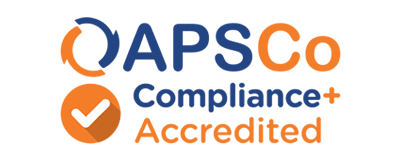Blog
Are you a supply teacher or teaching assistant looking for some help and advice? If so, you are in the right place. Our blogs offer tips and tricks on everything from classroom management to interview tips and support, along with day in the life case studies from real supply teachers, ECTs and cover supervisors. They also give you an insight into what working for Smile is like, the ways which we support local communities and charities and the training and events that we offer.
For more good stuff like this, follow us on social media - you can find us on Facebook, Instagram, Twitter and LinkedIn. Or pick up the phone and give us a call.
You might never have considered becoming a Cover Supervisor, but if you don’t yet have QTS and are looking to build your experience in the classroom or shift your working pattern to a more flexible, day-to-day schedule, this role might be the right choice for you.
What Is A Cover Supervisor?
Cover Supervisors supervise a class in the absence of their usual teacher. Unlike supply teachers, cover supervisors oversee a class while they’re completing work that has already been set for them, rather than teaching the class outright.
Cover supervisor roles are great for graduates and those looking to build their experience towards a teaching role. Not only this but for those who have previous teaching experience but wish to work a reduced or more flexible schedule, choosing to supervise classes a few times a week might be a good option.
For more information, read our top Cover Supervisor FAQs.
What Are The Benefits?
Becoming a cover supervisor can be a great step in your career if you’re a graduate or looking to build your skills. Most importantly, you’ll gain valuable experience while working day-to-day roles, and if you work with an agency, you can prioritise developing your experience across a range of schools, areas and specialisms.
This experience will also help you develop skills such as classroom and behaviour management – as the better this skill is, the better you’ll be at the role. Your work will have a direct impact on students’ lives, as you’ll have the vital task of helping them stay on track with their education.
What Can I Expect While Working As A Cover Supervisor?
When covering a class, you can expect to receive instructions on the work students will need to complete during the lesson. For example, whether students will need to hand in their work at the end of the lesson, whether the work requires any materials, and whether they have been set any homework. You might need to hand out teaching materials or any other equipment, and ensure everyone has everything they need to be getting on with their work.
You might also be given the opportunity to provide feedback on how the lesson went, for example, any issues with behaviour, whether there were any issues with the work set and anything else the students’ usual teacher will need to know.
It’s important to note that as a Cover Supervisor, you will not be actively teaching the class, but instead ensuring they maintain a good standard of behaviour and complete the tasks allocated to them.
What Skills Do You Need To Be A Cover Supervisor?
Due to the nature of the role, you’ll likely be covering classes on a last-minute basis. This means thinking on your feet and adaptability are crucial to being a Cover Supervisor. Students might finish their work early, or not have enough set.
You’ll also be covering a class that normally has a different teacher, so classroom and behaviour management are an absolute must. You’ll need to be resilient, approachable and organised, not to mention resourceful!
What Does A Typical Day Look Like For A Cover Supervisor?
As a Cover Supervisor, you’ll likely need to be available to take a call in the morning from your consultant to tell you where you’ll need to go and for how long. It’s a good idea to get up and ready so you can be on the road as quick as possible, so you can be on time for morning registration.
Once you’re at the school, you’ll need to go to reception to sign in, and take a photo for a visitor badge. You’ll then be able to head to the class you’ll be covering after being given a timetable and ideally, a map (this depends on the school). Bare in mind that you might also be asked for your most recent DBS certificate and proof of ID, so make sure to have these handy.
Cover Supervisor Tips
Make sure you can access important documents easily: When you sign into the school, you’ll likely be asked to provide documents like your most recent DBS and photo ID. You’ll also want to have it handy in case anyone asks you for them during the day. If you pack them into a neat, easily accessible folder, you can make sure you’ve got them to hand at all times.
Research the route and parking availability: If you’re taking public transport, double check bus, train or tram times and make sure you’re aware of any delays or changes to timetables. You might need to walk a certain distance from the bus or train station, so don’t forget to factor that into your travel time. If you’re driving, check the route to the school – many apps will give you an idea of traffic or road closures – and find out places you can park. There may be a staff car park, but it’s a good idea to opt for a plan b if you’re not able to find a space.
Prepare for the day: Whether it’s freezing some meal prep in advance so you can grab it and go, or packing yourself a bag the night before to take with you, it’s a good idea to make sure you’re prepared with everything you need for the school day, including the documents you’ll need. You might also want to bring a mug!
Cover Supervisor Jobs
If you’re thinking of finding work as a Cover Supervisor, Smile Education can help you. Take a look current Cover Supervisor roles in the Midlands and across Greater Manchester to learn more about what your future could look like.
If you’d like to speak to a consultant about registering with us, you can also call 0121 392 6570.
Add a comment:












